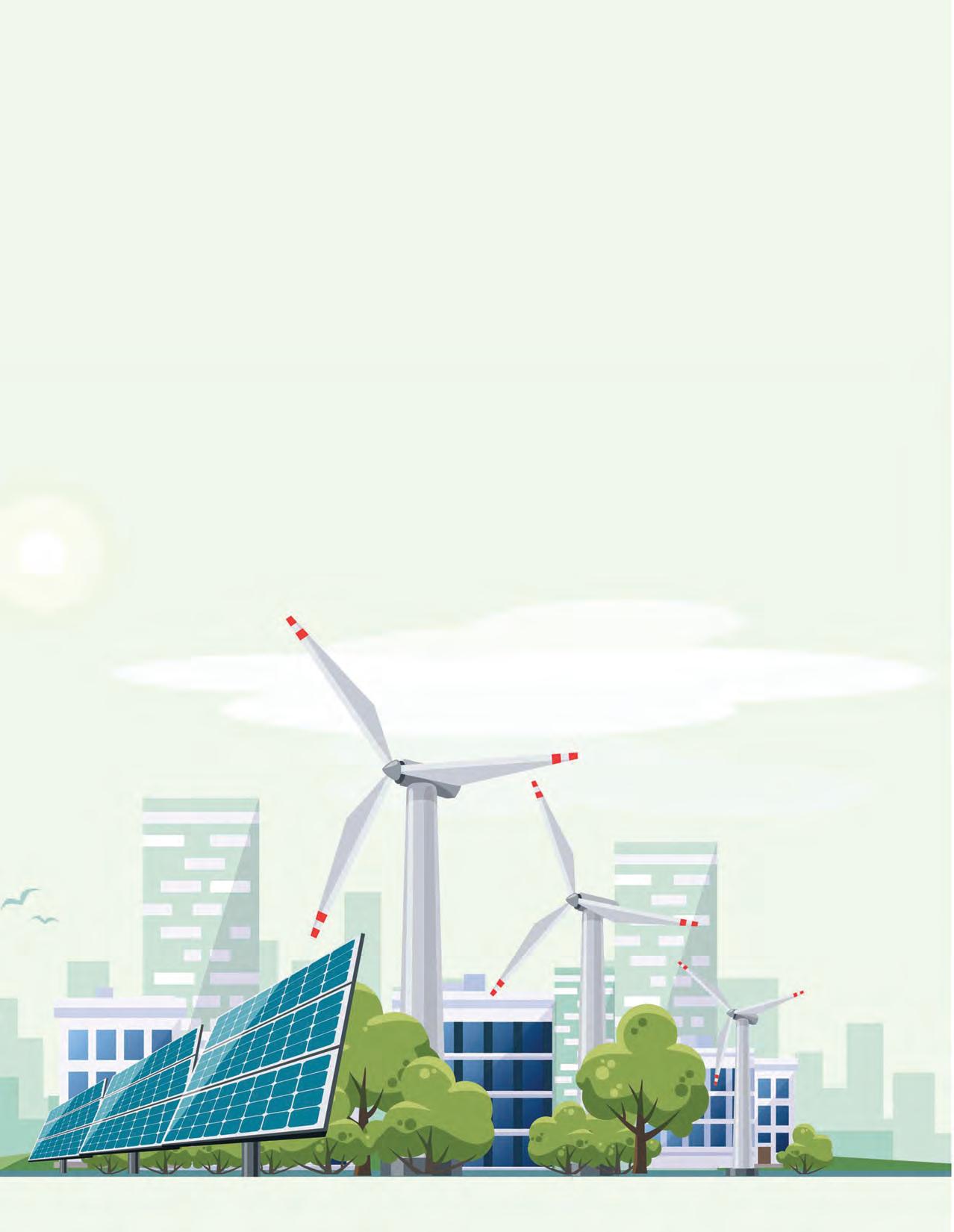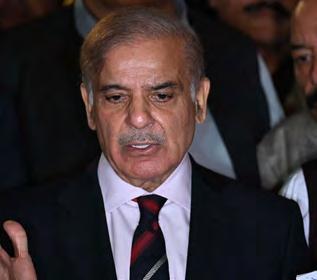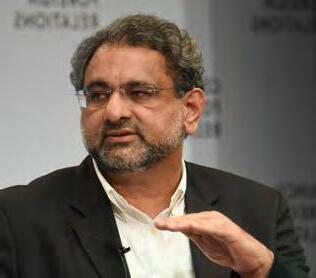
8 minute read
The final frontier - Renewable en
The final frontier Renewable energy
At the very least, solar energy should provide a solution to the domestic sector energy crisis
Advertisement
By Asad Ullah Kamran
As load shedding continues to pick up tempo, the overall political and economic uncertainty isn’t helping. Fuel prices have soared worldwide and continue to remain skittish, adding to the budget deficit when combined with soaring inflation it’s a recipe for disaster.
Despite consistent statements by the current government, the energy outlook of the country remains in shambles and critical economic decisions remain pending. To be fair, the issues had been brewing before the vote of no confidence took place and the government shifted hands.
The absence of electricity in cities throughout Pakistan during the ongoing heat wave has sparked an outcry from people. Although the energy situation isn’t getting better and protests against these outages continue, the current government seems to be leaning more and more towards renewables. And since the renewable energy solution providers are ready to pounce on this opportunity, clear and supportive government policies are necessary to spur this growth. The energy mix on average has only about 2.6% coming from renewables excluding hydel, taking into consideration the data from September last year to March of the current year. This is considered to be appalling and both private and public sector entities are driving ahead to change this. The Pakistan Energy Reform Summit was a testament to the willingness of government and private entities to refocus efforts on renewables.
State of the sector
The current state of affairs in both the economic and political domains has been dismal and disappointing on all fronts and has contributed to worsening the already trembling economy. Long power outages throughout Pakistan have become somewhat of a new norm going back to before the vote of no confidence.
Although as per NEPRA the energy supply is adequate enough to deal with the demand, and in some scenarios more than the demand. However despite this stance power outages have not subsided.
Currently, Pakistan’s oil import bill stands at $20bn, which could only be reduced by promoting green energy. The country has a huge potential of alternative energy resources in Sindh and Balochistan areas as well as Bahawalpur
Shehbaz Sharif, Prime Minister

Immediately after taking office Shahbaz Sharif took notice of the ongoing turmoil in the energy sector. He is reported to have remarked that load shedding during the summer season cannot be allowed to put people in trouble, and had instructed the authorities responsible to take prompt action to rectify the problems. The prime minister also demanded a long-term strategy to stop electricity distribution corporations from losing money.
In the latest turn of events local government members of the Pakistan Tehreek-e-Insaf (PTI) from Haripur took to the streets to protest the unexpected and lengthy load-shedding. They gathered outside the Haripur deputy commissioners’ office and yelled slogans against the administration of the Water and Power Development Authority (WAPDA).
Similarly in Karachi, K-Electric had been facing public outcry on account of massive load shedding. The company however denied the claims that Karachi was experiencing 14-hour load shedding, saying that the city was experiencing power outages as planned. Imran Rana the spokesperson for K-Electric also tweeted in this regard stating that “No load-shedding is taking place in areas with less than 20% line losses,” and that “power cuts are not being conducted on about 400 industrial feeders” as per the allegations.
Renewable Energy
Now although load shedding in the recent months has been intense and has caused mass outrage from the public, it is not the first time that this has happened and probably not the last. The energy sector of Pakistan is an extremely fragile and volatile environment that’s further exploited for political gains at the cost to private and state owned enterprises. Given the dismal situation in terms of availability of energy, private consumers have started leaning more towards renewables, particularly solar energy to meet their domestic needs. Furthermore by installing net metering and selling the excess units to the local DISCO citizens are able to cut down on their electricity bills and at the same time add to the somewhat constrained supply. At the recent Pakistan Energy Reform Summit 2022 issues in the energy sector that directly affect the overall economic health of the country was a key topic. And as per the government officials that addressed the private sector entities the importance of and increased reliance on renewables was pointed out. The new Minister of Energy at the energy reform summit also stated that, “interestingly the new magic bullet is solar, as we are told that solar rates are coming down. Therefore, the way forward is hydel plus solar, and whatever wind generation we can come up with”. He also highlighted the fact that hydel power is still the “mainstay” of the nation’s energy and that, despite its problems, it is still the most viable form of energy in the long term.
Chairman NEPRA also shared a similar perspective in regards to renewable energy. He also highlighted the point that hydroelectric power should be included in the category of renewables with wind and solar power. And he is not wrong, the United States Geological Survey also categorises hydroelectricity as renewable energy.
If we were to include electricity coming from hydel sources into the renewable category with solar and wind, we would end up at an average of 24.5% using the data from September till March. However there is an inherent risk when it comes to Hydroelectricity as it is highly dependent upon water levels.
In order to stimulate the use of alternative energy, Prime Minister Shehbaz Sharif has ordered the repeal of the previous PTI government’s 17 percent general sales tax on solar panels. It’s a positive step in the right direction toward lessening the country’s dependency on fossil fuel resources.
The interesting thing to note is that in the same period under consideration during the month of January 2022 hydel sources only constituted 5.83% of the total energy mix. Therefore making any new capital intensive ventures somewhat unsustainable, at the same time the deteriorating climate situation de-
Khurram Dastagir, minister for energy

In today’s energy market, when fossil fuel costs are rising, solar is really crucial to Pakistan’s demand. China has the most experience in solar, and they will come to Pakistan and help the country acquire more sustainable energy
Shahid Khaqan Abassi, former Prime Minister

mands that we as a country have to reduce our fossil fuel consumption one way or the other.
China
If you’re unaware, between 2008 and 2013, China’s budding solar-electric panel sector slashed global costs by up to 80%, this practically marked the moment that China would dominate the clean energy sphere. China has risen from small rural-focused solar programmes in the 1990s to become the world’s leader in what might soon be the world’s biggest renewable energy source. Although low-cost capital and labour are advantages that are generally lauded for China’s competitive advantage, they do not convey the complete story. A better explanation for China’s solar success is that the energy industry prioritises low costs, and China excels at cost-cutting and scaling — not just because of cheap resources, but also because of a remarkable ability to innovate manufacturing processes to lower costs and scale quickly, known as process innovation. China is leading the world in innovation and cost effective solutions on renewable energy and is ready to make most of the growing Pakistani market. The consumers in Pakistan are getting smart, although solar or wind energy solutions for domestic users are not cheap, they are however more reliable in keeping the lights on.
The keynote speaker Shahid Khaqan Abbasi also lauded the Chinese for their interest in investing in renewable energy in Pakistan. He additionally stated that China plays a significant role in Pakistan’s energy output and that the Pakistani government expects China to increase its investment, particularly in the country’s renewable energy industry. There is also consideration of Chinese firms bringing solar photovoltaic technology to Pakistan and setting up plants in Pakistan however that is cognisant of adequate demand.
Shahid Khaqan Abbasi also believes that in today’s energy market, when fossil fuel costs are rising, “solar is really crucial to Pakistan’s demand today,” and that “I am expecting China has the most experience in solar, and they will come to Pakistan and help the country acquire more sustainable energy.”
The factor that is making this option more lucrative and attractive is the crippled energy sector of Pakistan. By encouraging individual consumers that have the financial means to purchase these solutions through incentives and tax rebates as well as educating them on what a solar energy solution would mean for them.
Apart from this the government needs to take serious steps in curbing reliance on fossil fuels that are at this very moment burning a hole in the government’s pocket. Additionally to encourage investment in the sector the government should take the responsibility of providing adequate assurances and facilities to the renewable energy players in the country. Looking at the past few days the sales of local solar solution providers have gone up especially in the ongoing heat wave and energy outages.
Conclusion
In light of all the facts stated above, the government has a unique opportunity to make long term and sustainable decisions in regards to the energy sector of Pakistan. It would be prudent to understand that it is a process to move from fossil fuels to renewable energy and this takes time, at the same time one cannot simply ignore the effects of climate change domestically and worldwide. A clear and consistent effort involving all stakeholders must be made in order to address the grave situation we’re facing in Pakistan. The current state of affairs do inspire confidence in the economy in this regard, with extreme political turmoil and discord between the major parties is pitiful. Important and potentially difficult decisions have to be made despite the fact that might be political suicide for that particular party or individual, regardless that individual would be lauded as the savior especially in the dire straits we find ourselves in. n






